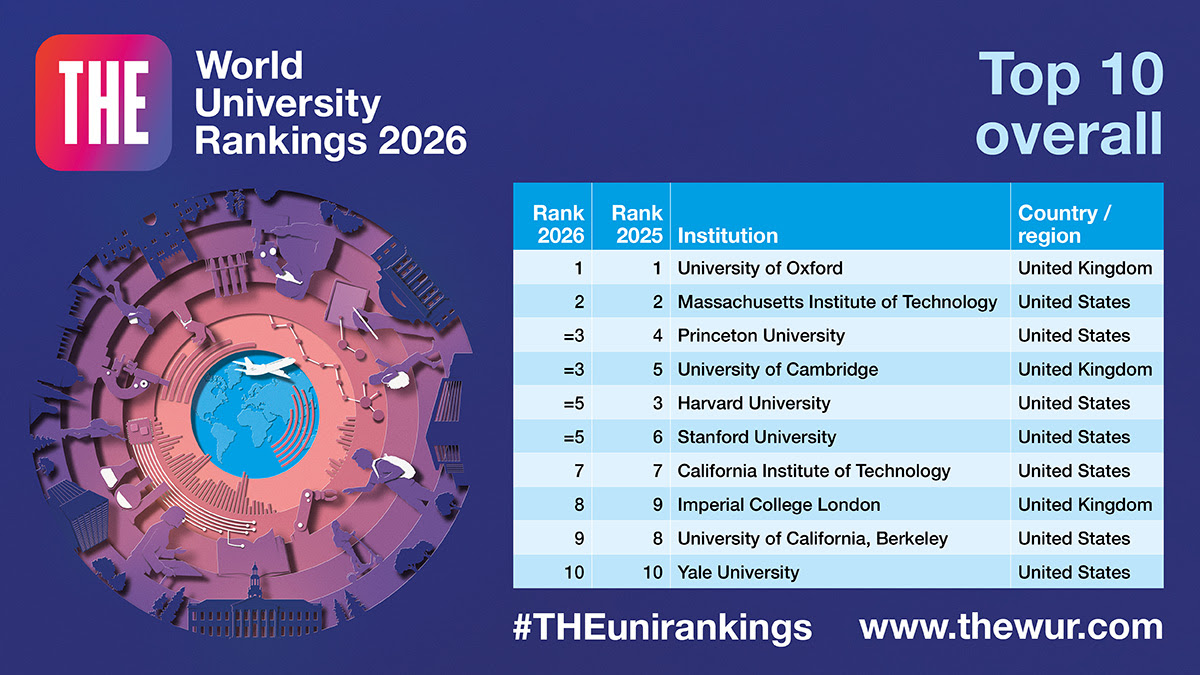Featured
FG Reacts As Both The UAE And U.S Tighten Visa Restrictions On Nigeria

The Federal Government has called for “reconsideration in the spirit of mutual respect and cooperation” in response to the recent U.S. decision to tighten visa restrictions
on Nigerian nationals, calling the action disproportionate.
This also coincides with the United Arab Emirates enforcing stricter entrance requirements for Nigerian tourists
and completely prohibiting applications for transit visas.
Under the new guidelines issued by Dubai immigration,
Nigerians between the ages of 18 and 45 will no longer be able to obtain tourist visas without an accompanying traveler,
and those over 45 must present a six-month personal bank statement
with a balance of at least $10,000 per month in order to be issued a visa.
The British High Commission in Abuja also revealed a modification to the UK’s immigration procedure
for Nigerians seeking work and study permits on Wednesday.

Also Read;
US Resumes Foreign Student Visa Processing; Read New Conditions!
Australia Denies Kanye West Visa Over Heil Hitler” Song
The Federal government was forced to react after being prompted by the US Department of State’s declaration in Abuja on Tuesday
that the majority of non-immigrant and non-diplomatic visas granted to Nigerians will henceforth only be valid for one entry
and be valid for three months starting on July 8, 2025.
What Does These New Visa Restrictions Mean For Nigerians?
This was also followed with a change to the US government’s visa reciprocity schedule for Nigeria was announced.
It further limited the validity of several non-immigrant visas,
such as those for business and tourist (B1/B2), students (F), and exchange visitors (J) to three months and only allowed one entrance.
The spokesperson for the Ministry of Foreign Affairs, Kimiebi Ebienfa, confirms that the government was closely examining the new directive and its potential implications.
“We are assessing the new policy and its necessary implications.
The government will respond soon, after due consultation with relevant stakeholders,” Ebienfa said
“The Federal Government views this development with concern and keen interest,
particularly given the longstanding cordial relations and strong people-to-people ties between our two countries.
“The decision appears misaligned with the principles of reciprocity, equity,
and mutual respect that should guide bilateral engagements between friendly nations,” Ebienfa added.

Featured
Chimamanda Ngozi Adichie Loses One of Her Twin Boys

Nkanu Nnamdi, one of the twin boys of renowned author Chimamanda Ngozi Adichie and her spouse, Ivara Esege, is dead.
The Communications Team for Adichie confirmed the death on Wednesday in a statement that was shared exclusively with The Guardian and signed by Omawumi Ogbe.
Nkanu passed away on Wednesday, January 7, 2026, following a brief illness, according to the statement. His age was twenty-one months.
The family called the loss “devastating” and requested that the public and media maintain their privacy during what they characterised as an extremely trying period.

They said that no more statements would be made and asked for prayers and understanding while they grieve in private.
The message concluded by expressing gratitude to the public and media for honoring the family’s request for privacy during the grieving process.
ALSO READ: Double Duduke! Simi and Adekunle Gold Welcome Twin Babies
Popular Nigerian music stars Adekunle Gold and his wife, Simi, have become parents again, this time to twins.
The award-winning singer shared the good news on his Snapchat story on Wednesday, confirming the latest addition to their family.
“Asked God for another child and he blessed me double,” she wrote.
While the couple has not yet disclosed the gender of the newborns, the announcement has sparked an outpouring of warm wishes from admirers, fellow celebrities, and industry colleagues.
Speculation had intensified in December when Simi posted a video on Instagram accompanied by the caption, “From my baby, for my babies.”
The clip showed her with a growing baby bump, fueling anticipation that another child was on the way.
Their latest blessings arrive just weeks after Simi highlighted a scene from Adekunle Gold’s newly released music video, “My Love is the Same,” further stirring excitement among fans.
In May 2020, the couple welcomed their first child, Adejare Kosoko, affectionately known as Deja.
Featured
Nigerian Army Opens 2026 Recruitment — Step By Step Guide On How To Apply

The Nigerian Army has officially opened applications for its Direct Short Service Commission (DSSC) Course 29/2026,
a major recruitment drive that’s rapidly trending across social media and news platforms today.
This development offers eligible Nigerians the opportunity to join the Army as commissioned officers and the process has been firmly clarified as free and fully online.
Open Doors for Young Nigerians: Army Recruitment Live from January 7
In a statement released on its official X (formerly Twitter) account on Tuesday, 6 January 2026, the Nigerian Army confirmed that applications for the DSSC Course 29/2026 will begin on Wednesday, 7 January 2026, and close on Wednesday, 4 February 2026.
The recruitment drive is aimed at both civilians and serving military personnel who meet clearly defined academic, professional, and physical fitness requirements.
The Army emphasised that the application process is completely free of charge and must be carried out online only through the official recruitment portal at recruitment.army.mil.ng.
Candidates are urged to ignore any unofficial links or payment requests that could indicate fraudulent activity, a reminder authorities have reiterated in past recruitment campaigns.

What You Should Know: 2026 Nigerian Army Recruitment Eligibility and Requirements
According to the Nigerian Army’s recruitment notice, applicants must meet several key criteria, including:
- Nigerian citizenship
- Aged between 20 and 32 by 30 March 2026 (older limits apply for certain medical roles)
- At least a second-class upper degree or an upper credit Higher National Diploma (HND)
- Completion of NYSC or valid exemption status
- Physically, mentally, and medically fit
- Valid identity documents (birth certificate, state of origin, NIN/BVN)
- Minimum height standards (1.68 m for males, 1.65 m for females)
The DSSC programme is designed to strengthen the Army’s officer cadre,
particularly in specialised professional corps including Engineering, Signals, Medical, Electrical and Mechanical Engineering, and Education.
How to Apply: A Step-by-Step Guide
Interested candidates should:
- Visit the official Nigerian Army recruitment portal at recruitment.army.mil.ng
- Register for a new account or log in if already registered
- Select DSSC Course 29/2026 from the available options
- Complete the online application form accurately
- Upload relevant documents such as certificates, photographs, and identification
- Submit before the 4 February 2026 deadline
Help desks have also been made available; applicants can call 08179269294 or 08109959294 from 8:00 a.m. to 6:00 p.m. daily for clarifications.
Why This Recruitment Matters
This recruitment exercise comes against the backdrop of a broader national security focus, with the Federal Government and military leadership emphasising the need to expand and professionalise Nigeria’s defence forces amid evolving security challenges.
Last year, President Bola Ahmed Tinubu declared a nationwide security emergency, empowering the armed forces to recruit more personnel to bolster troop strength and operational readiness.
Experts suggest the DSSC recruitment will not only offer stable careers to young Nigerians
but also bring in specialised skills and expertise to support the Army’s complex technical and operational requirements
particularly in engineering, medical, and communications fields.
Featured
Tompolo Donates N10Billion Naira To Delta Security Fund; Patriotism Or A Power Move?

Former militant leader and Niger Delta activist, Government Ekpemupolo, popularly known as Tompolo, has once again taken center stage in Nigeria’s public discourse
after donating a staggering ₦10 billion to the Delta State Security Trust Fund.
The move, which dominated conversations across social media on Wednesday, has been hailed by some as an unprecedented act of patriotism
and by others as a calculated power statement from one of the most influential figures in the region.
The donation was made through Tantita Security Services Nigeria Limited (TSSNL), Tompolo’s firm currently contractd by the Federal Government to secure oil pipelines in the Niger Delta.
At the relaunch event held at the Government House in Asaba, Governor Sheriff Oborevwori unveiled the new phase of the Security Trust Fund,
describing it as a bold step toward building a safer Delta driven by collaboration between government, private businesses, and local stakeholders.
Tompolo, also serving as the Chief Launcher, made a rare public appearance and stunned the audience with his ₦10 billion pledge
an amount many described as a “game changer” in the state’s ongoing battle against insecurity.
Furthermore, Governor Oborevwori explained that the Trust Fund would support the acquisition of modern security equipment, patrol vehicles, and communication tools,
as well as training for local vigilante and law enforcement agencies across Delta’s 25 local government areas.
He alsl added that the state would now allocate 0.5 percent of its monthly internally generated revenue (IGR)
to sustain the initiative, encouraging more private donors to follow Tompolo’s example.

The event attracted several business and political heavyweights, including Aigboje Aig-Imoukhuede,
who chaired the launch and pledged ₦100 million on behalf of himself and his wife,
and also Jim Ovia, founder of Zenith Bank, who praised the fund as a visionary response to Delta’s evolving security challenges.
Tompolo Donates N10Billion Naira To Delta Security Fund; Patriotism Or A Power Move?
Meanwhile, Representing Tompolo, Tantita’s managing director Keston Pondi emphasized that the donation was “not charity,
but an investment in peace,” stressing that sustainable development is impossible without stability in oil-producing areas.
Yet, while many have applauded Tompolo’s generosity, critics have been quick to question the motive behind such a massive donation.
Some political observers argue that it could signal a strategic attempt to cement his influence in Delta’s security landscape
and maintain leverage over state and federal authorities.
Others see it as a genuine effort by a man who once fought against the system to now protect it,
proof of how far he has come from his days as a militant commander.
Either way, Tompolo’s gesture has reignited conversations about the balance between private power and public governance in Nigeria’s Niger Delta.
It also raises broader questions about the sustainability of security funding and the transparency of the management of such massive donations.
For now, the ₦10 billion pledge stands as both a headline-grabbing show of wealth and a potential turning point in Delta’s long fight for peace and stability.
Whether it becomes a lasting legacy or a fleeting spectacle, only time and accountability will tell.
Featured
Hallelujah Challenge: Nathaniel Bassey Unveils Praise Building

Famous Nigerian gospel singer Nathaniel Bassey has revealed a large new facility for his annual Hallelujah Challenge praise concert.
The gigantic two-story edifice, built in just eight months, has a large welcome space, elegantly adorned rooms, chandeliers, flowers, and well-organized lighting.
A mesmerising video published on Instagram depicted the transformation of a barren plot of ground into a bustling center of worship.
Bassey expressed his profound appreciation to God, saying

“Baba, we thank you! You have entered your new life in Jesus’ name!”
The video triggered an outpouring of joy online, with followers thanking God for His faithfulness and praising Bassey for being an inspiration.
The Hallelujah Challenge, a global praise and prayer movement with millions of participants, is projected to have a greater impact with the new venue.
Popular Clergy, Rev. Uma Ukpai Passes On At 80
The structure will serve as a centre for worship, prayer, and community events, creating a sacred space for believers to interact with God and one another.
The Christian community in Nigeria and beyond is mourning the loss of one of its most revered figures, Evangelist Rev. Dr. Uma Ukpai, who passed away on October 6, 2025, at the age of 80.
His family, in an official statement titled “Glorious Transition,” described his passing as a triumphant homegoing and a peaceful completion of his earthly mission.
Early Life and Calling
He was born on January 7, 1945, in Asaga, Ohafia, Abia State. Uma Ukpai’s journey was marked by humble beginnings and early adversity.
Losing his father at a tender age, he faced significant hardship but remained determined to continue his education through perseverance and hard work.
He gave his life to Christ in 1958, a decision that set him on a lifelong path of service to God and humanity.
From a young age, Uma Ukpai experienced profound spiritual encounters that deepened his faith and shaped his calling.
One of the most defining moments of his childhood was the miraculous healing of a mentally challenged man,
which he later described as the event that launched him into ministry.
Featured
Finance Minister, Wale Edun Hospitalised, Presidency Assures No Replacement Planned

Finance Minister and Coordinating Minister of the Economy, Wale Edun, is currently trending amid reports of a sudden illness that has forced him to step back temporarily from public duties.
The Presidency has however confirmed that Edun is indisposed and recuperating,
but dismissed rumours that he suffered a stroke or has been flown abroad for treatment.
According to government sources, Edun is recuperating in his Abuja residence under the care of Nigerian doctors.
A senior official described his condition as “somewhat serious,” but emphasised that it is not stroke-related.
With Wale Edun unable to attend, the Presidency has tapped Central Bank Governor Olayemi Cardoso to lead Nigeria’s delegation to the 2025 World Bank and IMF Annual Meetings in Washington, D.C.
The substitution underscores efforts to maintain continuity in Nigeria’s representation on the global economic stage.

Meanwhile, Despite speculation, officials assert there is no plan to replace Edun in the cabinet.
Presidential spokespersons maintain that his medical leave is temporary, and that his role in the economic management team remains intact.
Edun, aged 69, is well known as a key figure in President Bola Tinubu’s economic reforms,
including efforts at fiscal policy realignment and exchange rate unification.
His absence comes at a sensitive moment, raising questions about the administration’s capacity to sustain momentum on critical economic issues.
As Nigerians await further updates, all eyes are on how the government will manage key meetings and maintain fiscal stability in his absence.
Featured
2026 University Ranking List; UI Dethrones Covenant University, Ranks 1st; Full List Here!

The University of Ibadan (UI), Oyo State, has been named Nigeria’s top university in the Times Higher Education (THE) World University Rankings 2026.
According to the ranking released on THE’s website on Thursday, UI secured a global placement between 801 and 1,000, reclaiming the top national spot it last held in 2023.
The 2026 rankings evaluated 2,191 universities across 115 countries, using 18 performance indicators in five key categories — teaching, research environment, research quality, industry engagement, and international outlook.
UI rose from fourth place in 2025 to become Nigeria’s best for 2026, displacing Covenant University, which had led the rankings in 2024 and 2025.
Rounding out the top Nigerian universities are the University of Lagos (second), Bayero University (third), and Covenant University (fourth).
The 2026 edition also reflected significant changes in global higher education, analysing 174.9 million citations from 18.7 million research publications and drawing on survey responses from over 108,000 scholars worldwide.
In specific performance areas, the University of Lagos achieved the highest research quality score in Nigeria, earning 66.7 points.

BUK is ranked as the best Nigerian university in terms of international outlook, while Covenant has the highest industry score, indicating its top connection to industries.
Out of 51 Nigerian institutions featured in THE 2026 ranking, only UI and UNILAG fall between 801–1000; BUK, CU, and Landmark University fall between 1001–1200; while five schools—Ahmadu Bello University, Federal University of Technology, Minna, University of Ilorin, University of Jos, University of Nigeria—stand globally between 1201–1500.
2026 University Ranking List; UI Dethrones Covenant University, Ranks 1st; Full List Here!
Also, 14 Nigerian universities were categorised above 1501, and 27 institutions were not ranked.
See the full list
- University of Ibadan (801–1000)
- University of Lagos (801–1000)
- Bayero University (1001–1200)
- Covenant University (1001–1200)
- Landmark University (1001–1200)
- Ahmadu Bello University (1201–1500)
- Federal University of Technology, Minna (1201–1500)
- University of Ilorin (1201–1500)
- University of Jos (1201–1500)
- University of Nigeria, Nsukka (1201–1500)
- Babcock University (1501+)
- Delta State University, Abraka (1501+)
- Ekiti State University (1501+)
- Federal University of Agriculture, Abeokuta (1501+)
- Federal University of Technology, Akure (1501+)
- Federal University of Technology, Owerri (1501+)
- Federal University Oye-Ekiti (1501+)
- Ladoke Akintola University of Technology (1501+)
- Lagos State University (1501+)
- Nnamdi Azikiwe University (1501+)
- Obafemi Awolowo University (1501+)
- University of Benin (1501+)
- University of Calabar (1501+)
- University of Port Harcourt (1501+)
- Admiralty University of Nigeria
- Akwa Ibom State University
- Al-Hikmah University
- Augustine University
- Bamidele Olumilua University of Education, Science and Technology, Ikere-Ekiti
- Bauchi State University, Gadau
- Bayelsa Medical University
- Baze University
- Bells University of Technology
- Bowen University
- Evangel University, Akaeze
- Federal University of Lafia
- Federal University of Petroleum Resources, Effurun
- Fountain University
- Godfrey Okoye University
- Igbinedion University Okada
- Kaduna State University
- Lagos State University of Education
- Lagos State University of Science and Technology
- Lead City University
- Maryam Abacha American University of Nigeria
- Nasarawa State University, Keffi
- Redeemer’s University
- Rivers State University
- Thomas Adewumi University
- University of Cross River State
- University of Delta
Featured
Femi Falana Faults Kemi Badenoch Over Nigerian Citizenship Claim

Human rights lawyer Femi Falana, SAN, has called out United Kingdom Conservative Party leader, Kemi Badenoch.
This comes over her claim that she cannot pass Nigerian citizenship to her children because of her gender.
During an interview with CNN’s Fareed Zakaria on Sunday, Badenoch asserted that she cannot pass on her Nigerian citizenship to her children because of her gender. She suggested that it is easier for Nigerians to acquire British citizenship than for foreigners to become Nigerians.
She said, “It’s virtually impossible, for example, to get Nigerian citizenship. I have that citizenship by virtue of my parents. I can’t give it to my children because I’m a woman.
“Yet loads of Nigerians come to the UK and stay for a relatively free period, acquire British citizenship. We need to stop being naive.”

Reacting in a statement issued on Monday, Falana described Badenoch’s statement as “a display of utter ignorance” and accused her of misinforming the British public to score political points.
ALSO READ
Kemi Badenoch Again Comes For Nigerians, Says She Cannot Tranfer Her Nigerian Citizenship To Her Kids
Actor Jerry Williams Reportedly Arrested By Police
Bruce Willis Cannot Read Or Speak As Dementia Worsens
Femi Falana said, “In her desperate attempt to impress the British electorate, Kemi Badenoch keeps running down Nigeria.
“Contrary to her misleading claim, her children are Nigerians because she is a Nigerian. Her assertion that she cannot give Nigerian citizenship to her children because she is a woman is not in consonance with Section 25(b) and (c) of the Nigerian Constitution which provides that every person born in Nigeria after independence, either of whose parents or grandparents is a citizen of Nigeria, or any person born outside Nigeria to a Nigerian parent, is a citizen.
“Furthermore, by virtue of Section 42(2) of the Constitution, no citizen shall be subjected to any disability or deprivation merely by reason of circumstances of birth, gender, or class. Therefore, her two children are Nigerian citizens. The fact that she may not want them to claim it is irrelevant. For now, they are dual citizens of Britain and Nigeria.”
Falana also faulted her assertion that Nigerian citizenship is impossible for foreigners to obtain, noting that “Sections 26 and 27 of the Constitution clearly state that foreigners can acquire Nigerian citizenship through naturalisation or registration once they meet the legal conditions.”
He, however, acknowledged gaps in the law, saying that “A woman married to a Nigerian man can be registered as a citizen, but the same privilege is not extended to a man married to a Nigerian woman, which reflects the patriarchal nature of the law. This should be urgently amended.”
Featured
Ministry Of Education Denies Cancelling 2025 WAEC Examination!

Online rumours that the 2025 West African Examinations Council (WAEC) exams will not be held have been refuted by the Ministry of Education.
The ministry called the remark “false and misleading”
and urged the public to ignore it in a press release issued on Sunday, July 20.
A statement allegedly signed by “Dr. Aisha Lawal” and posing as a “urgent notice” from the federal ministry of education had gone viral online.
According to the announcement, rampant examination misconduct, including question leaks up to 72 hours prior to planned exams,
led to the nationwide cancellation of the 2025 West African Senior School Certificate Examination (WASSCE).

Also Read:
Anambra Student, Okeke Chinedu, Emerges Top Scorer In UTME 2025
WAEC Explains What Led To Students Writing Exams Late!
The education ministry, however, rejected the report in a statement issued Sunday evening,
Further claiming that the 2025 WAEC exams were “successfully concluded”
and that there had only been a few isolated instances of misconduct that were quickly resolved.
Ministry Of Education Assures Nigerians That The 2025 WAEC Examinations Will Still Hold
Additionally, it indicated that as of the time of publication, there had been no reports of malpractice
and that the current National Examinations Council (NECO) exams were proceeding without incident.
The federal ministry of education has not received any official communication or report from WAEC, NECO, or any examination body regarding widespread malpractice in either of the examinations,” the statement read.
The ministry also advised students, parents, school administrators, and the general public to “disregard the fake press release currently in circulation,”
describing it as “entirely fabricated, misleading, and intended to cause unnecessary panic and confusion.”
The public is urged to seek information only from verified sources,
including the official websites of the federal ministry of education (www.education.gov.ng), WAEC (www.waecnigeria.org),
and NECO (www.neco.gov.ng), as well as other reputable media outlets.
The ministry further said it is committed to upholding the integrity and credibility of all public examinations,
vowing to work with examination bodies to strengthen monitoring and enforcement.
It also warned that individuals found spreading false information would be reported to security agencies for investigation and prosecution.
Featured
Kemi Badenoch Again Comes For Nigerians, Says She Cannot Tranfer Her Nigerian Citizenship To Her Kids

Kemi Badenoch, the leader of the UK’s Conservative Party, has criticised the UK’s too lax immigration laws and asserted that she is unable to grant her children Nigerian citizenship due to her gender.
In an interview with CNN’s Fareed Zakaria on Sunday, July 20, Badenoch made the claims while talking about UK immigration laws and how Britain differs from nations like Nigeria.
She further claimed that many immigrants take advantage of the British system in ways that are unacceptable in their home countries.
She also quickly said “no” when asked if she would allow a Nigerian immigrant to establish a “mini-Nigeria” in the UK for cultural assimilation.

Also Read:
“Edo Hates Him” – APC Chairman Backs Okpebholo’s Threat To Peter Obi Coming Into The State
Actor Gideon Okeke Berates Jim Iyke Over Controversial Birthday Wish To Kate Henshaw
“Pretty Little Baby” Singer, Connie, Passes Away At 87
“That is not right. Nigerians would not tolerate that. That’s not something that many countries would accept,” she added.
There are many people who come to our country, to the UK, who do things that would not be acceptable in their countries.”
Kemi Badenoch Continues Her Onslaught Against Nigerians
Using her children’s alleged inability to get Nigerian citizenship to illustrate the stark contrast between Nigeria’s approach and that of the UK, she said:
“It’s virtually impossible, for example, to get Nigerian citizenship. “I have that citizenship by virtue of my parents, I can’t give it to my children because I’m a woman.”
“Yet loads of Nigerians come to the UK and stay for a relatively free period of time, acquire British citizenship. We need to stop being naive.”
Meanwhile Contrary to Badenoch’s claim, section 25(1)(c) of the Nigerian Constitution states that a person born outside the country is a citizen of Nigeria if either of their parents is Nigerian.
This means having just one Nigerian parent is sufficient for citizenship by birth.
It is still not clear why Kemi Badenoch is so hell bent at spreading hate towards her country Nigeria
Because at every given opportunity she must have one negative thing or the other to say about her birth country
At first, Nigerians thought it was all an act to show solidarity to the UK that she is fully a citizen
But the constant witch hunting of Nigerians and Smear campaign against Nigeria as a country, is far from just showing solidarity
Meanwhile, watch her speak HERE
Featured
Air India Pilot Allegedly Crashed Plane Intentionally – Avaition Expert Claims

According to Captain Byron Bailey, an aviation expert from Australia, the most recent evidence suggests that the captain of the Air India aircraft must have purposefully shut off the fuel control switches.
Recall that Air India Flight 171, which was carrying 242 passengers and crew members,
crashed into a building in Ahmedabad on June 12, 2025, shortly after taking off.
There was only one survivor on the aircraft.
In a densely populated district, a Boeing 787-8 Dreamliner headed for London’s Gatwick Airport crashed,
killing an additional 19 people on the ground.

Vishwash Kumar Ramesh, a British-Indian national, was the only person to survive the flaming wreckage, fortunately only sustaining minor injuries.
Meanwhile, Three seconds after takeoff, the plane’s fuel control switches were turned off,
this is according to an initial investigation on the disaster from India’s Aircraft Accident Investigation Bureau.
Then, because the engines were not receiving enough fuel, the aircraft started to lose thrust.
The results also showed that shortly after the switches were reactivated
and one engine’s power was restored, the Air India plane crashed.

Also Read:
Air India Crash: Possible Sabotage Mentioned As Investigation Continues!
See Crew Of The Air India Plane Crash That Claimed Over 200 Lives
Terrifying Moment Air India Plane Carrying 242 Passengers Crashed!
Furthermore an analysis of black box data suggests pilot-in-command Captain Sumeet Sabharwal, 56, placed the switches into the “cut-off” position,
The Wall Street Journal has reported, citing US pilot sources familiar with the report.
Black Box Recording Reveals Argument Between Both Pilots Of Air India Before Crash
The black box voice recording also indicated a back-and-forth unfolded between the two pilots,
with first officer Clive Kunder – who was flying the aircraft – questioning the senior pilot’s move.
The revelations have now cast a spotlight on the actions of the captain,
as aviation experts claim cutting off the fuel supply could not have been done by accident.
Meanwhile, Speaking to Sky News Australia on Thursday, July 17, about the developments, Captain Bailey was of the view the pilot-in-command made a conscious move to flick off the fuel switches.
“To us aviation people … we believe straight away that the only way this could have happened is if the captain turned off the fuel control switches,” he told Sky News Chief Anchor Kieran Gilbert.
“The first one, which is right by his right hand, three seconds up and lift off – and the second one, one second later.”
Captain Bailey claimed the co-pilot, also known as a first officer, would have had his “hands full” flying the aircraft.
“Both hands would have been on the yoke (control wheel) during this period, so he could not have reached down and turned the fuel cut off switches,” Captain Bailey said.
“They’re mechanical, they’re not worked by electricity, and they require absolute physical effort to lift the switch up, raise it over the gate and back down.
“So it had to be done by one of the pilots. But since the co-pilot was the one flying, then of course, the captain was one under suspicion.”
In his view, Captain Bailey claimed the crash was “suicide by the captain”.
-

 Entertainment9 months ago
Entertainment9 months ago“I Made ₦10million In A Week During Covid”-Aisha Lawal
-

 Entertainment9 months ago
Entertainment9 months ago“I AM A PROUD YORUBA BOY!!!”-Mr Macaroni Slams APC Supporters
-

 Featured7 months ago
Featured7 months agoAir India Pilot Allegedly Crashed Plane Intentionally – Avaition Expert Claims
-

 Entertainment9 months ago
Entertainment9 months agoSeyi Law Slams Tunde Ednut for Alleged Harassment
-

 Featured9 months ago
Featured9 months agoResident Evil 9 Returns! See Official Release Date
-

 Entertainment9 months ago
Entertainment9 months agoAura For Aura: Iyano Ojo Drags Tanzania Media Personality, Mage Kimambi over Priscy And Jux’s Call Out!
-

 Entertainment8 months ago
Entertainment8 months agoOlamide And Asake Collaborates On New Track “99”: Feud Over?
-

 Entertainment8 months ago
Entertainment8 months ago“We Were Paid ₦10k Daily to Campaign For Tinubu”-Actor Lalude


























